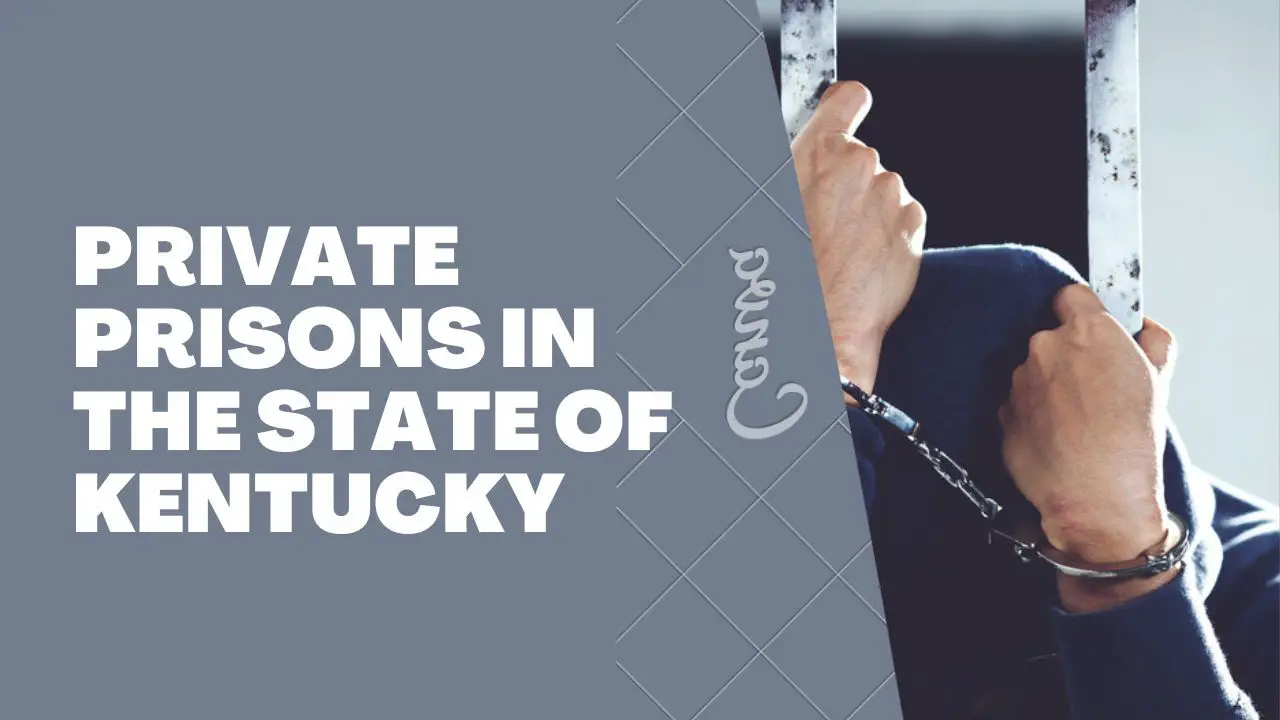Private Prisons In The State Of Kentucky
This article explores the private prisons in the state of Kentucky which has the highest Per Capita Incarceration Rate (PCIR) of any neighboring.

The state of Kentucky has the highest Per Capita Incarceration Rate (PCIR) of any neighboring state. It is one of the top 10 states and is growing. If every state in the United States were a nation, Kentucky would have the world's ninth-highest imprisonment rate.
In the 1930s, 60% of Kentucky's prisoners were serving terms of five years or less. Kentucky State Reformatory housed 2400 convicts in 1962. Sixty-five percent of these offenders were serving terms of five years or less.
Moreover, eighty-six percent of new inmates to Kentucky State Reformatory that year got sentences of five years or less. It's worth noting that Kentucky's inmate population dropped by more than 25% between 1940 and 1970.
Today, the average sentence is 14 years, and just 23% of offenders get a sentence of 5 years or less. The majority of these convicts are housed in overcrowded county prisons with insufficient capacity for rehabilitation programs.
State Senator Jimmy Higdon had once indicated in Kentucky Criminal Justice Forum in Louisville that county jailers were the principal opponents of expanding the use of private prisons. Prisoners have been reduced to commodities.
The Kentucky Department of Correction (KDOC) appears to be unable to control the jails that prefer to be overly overcrowded.
Read Private Prison In The State Of Idaho
HISTORICAL BACKGROUND OF KENTUCKY’S PRIVATE PRISONS
Between 1967 and 2011, Kentucky abolished 67% of its executions. Consequently, the American Bar Association (ABA) suggested in 2011 that the state stop the death punishment. Kentucky Senator Robin Webb presented a measure to repeal the death penalty in 2015.
However, the bill's wording asked for adjustments in schooling for law enforcement and court employees. The measure also addressed the acquisition and keeping of DNA evidence. On March 25, 2022, the Kentucky Senate passed legislation prohibiting the death sentence for those with significant mental conditions.
Since the start of the 2015 fiscal year, the department has faced a workforce shortfall due to low salaries and continual overtime, which is already approaching $10 million. Also, the temptation of higher-paying employment in the private sector.
In response to the staffing crisis and continued pressure from correctional employees, the Kentucky Legislature called a special session.
It authorized an immediate 13.1% pay raise for present security personnel, a shift to 40-hour work weeks for non-security personnel, and a rise in the beginning salary for Correctional Officers from $23,346 to $30,000 per year.
Former Kentucky governor Matt Bevin included $4.5 million in his biannual budget plan shortly after taking office to provide pay raises to correctional employees.
Read Private Prisons In The State Of Hawaii
SERVICES AND PROGRAMS OFFERED BY KENTUCKY PRISONS
MENTAL HEALTH PROGRAM
The Kentucky Department of Corrections (KDOC) spends 1.4% of its budget on convicts' mental health needs. According to studies, 50% of the detainee population suffers from severe psychological suffering.
It's worth noting that during the mid-1920s to mid-1930s convict population issue, Kentucky established two big mental hospitals: Central State, near Louisville, and Kentucky State Hospital, near Danville.
EDUCATIONAL PROGRAMS
The Kentucky Department of Corrections spends 1% of its budget on inmate vocational and academic training. They provide all their inmates with basic adult education and vocational skills for reintegration into society.
SUBSTANCE ABUSE PROGRAM
KDOC spends around 2.2% of its budget on substance addiction programs (SAP). Almost one-third of county prisons have such programs. However, just 13% of state offenders are doing time for a drug offense. For studies reveal that 53% of offenders have a substance dependence condition.
LIST OF PRIVATELY OWNED PRISONS IN KENTUCKY
Marion Adjustment Center in St. Mary
Marion Adjustment Centre (MAC) is a medium-security private prison near the Kentucky town of St. Mary. The jail is run by CoreCivic, a private prison firm. The MAC was established in 1989 and can house 1,350 convicts.
Moreover, male offenders serving terms of less than two years are housed at the facility. The MAC provides its inmates with a wide range of programs and services, including education, vocational training, substance addiction treatment, and religious programs. A medical facility and a dental clinic are also available in the jail.
CoreCivic has stated its commitment to providing safe and compassionate conditions for MAC prisoners. The corporation has also stated that it is attempting to enhance the prison's care quality.
The ACLU of Kentucky launched a lawsuit against the MAC in 2023. The complaint claims that the jail is violating the inmates' constitutional rights by neglecting to provide them with proper medical treatment.
Otter Creek Correctional Center in Wheelwright
Otter Creek Correctional Centre, located near Wheelwright in southern Floyd County, is a level five correctional institution that holds male convicts. The institution, which accommodates around 2,500 convicts, is Kentucky's biggest male prison.
The Otter Creek Correctional Centre also holds pre-trial prisoners as well as death sentence offenders, and it is equipped to carry out executions. In addition to the death row section and the ability to carry out executions, the jail has a Security Housing section. This is a section of the Otter Creek Correctional Centre where offenders who pose a high-security risk are confined 24 hours a day, with one hour of leisure time.
Southeast State Correctional Complex
The Southeast State Correctional Complex, originally known as the Otter Creek Correctional Centre, is a medium-security prison near Wheelwright, Kentucky. CoreCivic owns the institution, which is run by the Kentucky Department of Corrections.
At various times, the jail has accommodated both male and female prisoners from Kentucky and Hawaii. The prison first opened its doors in 1981. But, In 2008, a center secretarial staff tragically shot herself in the office of then-warden Joyce Arnold, prompting questions about how the firearm was smuggled past security.
Hawaii evacuated its 168 female convicts from Otter Creek beginning in 2009, citing various claims of mismanagement and inadequate medical treatment. Moreover, in 2012, Kentucky evacuated its state prisoners from Otter Creek. From 2012 through 2020, the facility sat empty.
Kentucky Governor Matt Bevin stated on October 18, 2019, that the Commonwealth of Kentucky would engage in a ten-year leasing arrangement with CoreCivic to lease and restore the facility.
And the Southeast State Correctional Complex will be administered and maintained by the Kentucky Department of Corrections and will follow the same regulations and procedures as state-owned institutions. The jail reopened in 2020 with male convicts.
Lee Adjustment Center in Beattyville
The Corrections Corporation of America (CCA) built and operated the Lee Adjustment Centre as a private, for-profit medium security prison with a capacity of 800 prisoners. The county thought that the jail would offer employment for locals. However, CCA has contracts with Kentucky and Vermont to hold inmates here.
In 2004, Vermont inmates rioted, and Kentucky inmates joined them. Kentucky released its final convicts in 2010, and their contract with a CCA expired in 2013. Vermont released its prisoners in 2015.
The Kentucky Department of Corrections secured a new deal in November 2017, allowing CCA, now known as CoreCivic, to revive the abandoned prison due to congestion at state-owned institutions. These offenders would be moved from LaGrange's Kentucky State Reformatory.
However, the Lee Adjustment Center reopened and began receiving convicts again in March 2018.
